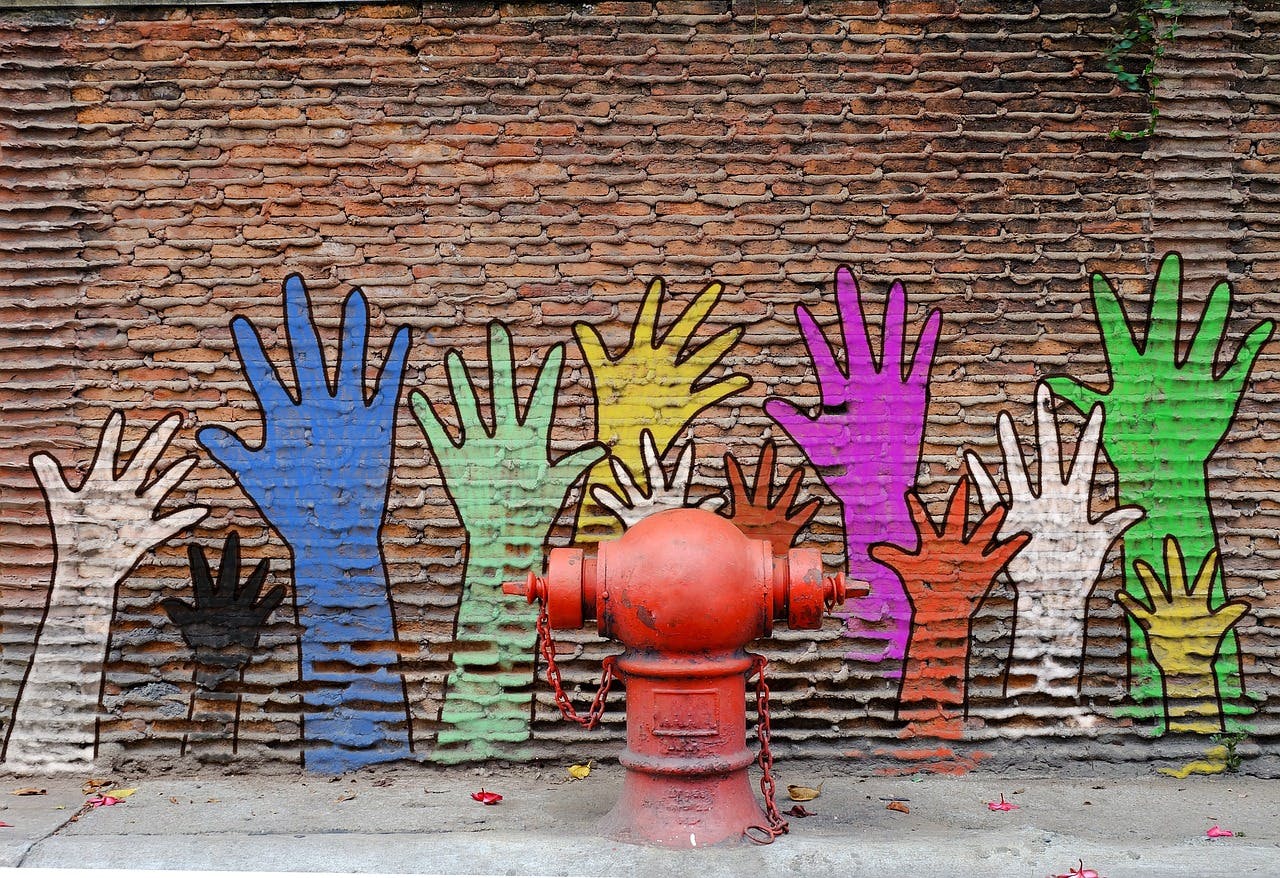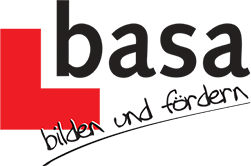
United against Racism
With the title "United against Racism", a project week took place at Gutenbergschule Wiesbaden from 10 to 14 July 2023.
During this week, 16 students dealt intensively with identity constructions in order to develop a deeper understanding of the diversity and complexity of identities. The participants reflected on their own identity characteristics and became aware of how they influence our perceptions and interactions. Another important focus of the project week was the development of strategies for dealing with experiences of racism.
Since the students had different backgrounds, were of different ages and came from different classes, the week began with an intensive phase of getting to know each other, during which the participants and the trainers were able to exchange information about their expectations and the way they would like to work over the next five days. It was agreed to support each other and to remain open for an exchange in a respectful framework. However, it should not be forgotten that despite the seriousness of the topic, fun should not be neglected. One of the participants put it in a nutshell: "Fun despite the serious topic".
The work continued with a brainstorming session on what constitutes identity. This led the group to a reflection on identity and then to a discussion on structural dimensions of belonging as well as positioning in society. To conclude the day, participants used Instagram to analyze various prejudices and stereotypes and how they are spread.
After the introductory phase of the first day, we went deeper. This was not an easy task to do because reflecting on one's own prejudices and defining racism are not easy. Through the use of different methods, the participants became aware of the automatic process of social categorization and realized how strongly prejudices can influence our thoughts and actions.

What is racism?
What is racism?
The core of the day was an analytical approach to the phenomenon of racism. Participants critically examined the dictionary definition of racism and concluded "that it does not correspond to reality" and then wrote their own definition of racism:
"Racism is an ideology that stems from 'race theory' and divides people into different valences based on their skin color or origin. This creates a structure that privileges people on one side and oppresses people on the other. This has been in society for years and manifests itself on different levels."
The day ended with a lively discussion and critical analysis of current issues such as the events surrounding the murder of George Floyd in the U.S., the attack of February 19th on young people in Hanau, and the recent murder of Nahel Merzouk in France. Finally, a constructive feedback session was held.
The third day continued with an exchange of views on what can be done against racism. What are the options for action? The participants very quickly made suggestions related to the school context. At the end of the day, the participants developed a project that they wanted to realize: An interactive exhibition on racism to present their proposals and everything that was discussed to their classmates and teachers.
On the fourth day, participants wrote a statement about what they would like to change at school to address racism. Here is an excerpt from it:
"...We demand that students who make racist statements be dealt with more severely. Students need a point of contact in school where they can get help, especially if the racism comes from teachers. Everyone should be so accepted and graded fairly, no matter what your background or what you look like."
On the fifth day, the participants prepared the exhibition that was to be shown during the school festival the following week. The project week ended with an evaluation in which the participants gave positive feedback. The participants reported that they had acquired new knowledge on the topic and, above all, had developed a sense of togetherness and solidarity. In addition, the students mentioned that one of the positive aspects of the week was that the speakers were willing to listen to them and adapt the program according to the needs of the group. Through varied methods, discussions and educational games, it was possible to create a valuable, safe space together to share experiences and broaden the understanding of a complex issue like racism, but most importantly, to gain new perspectives.
We (the speakers) were impressed by the depth and diversity of the topics covered and felt enriched by the different perspectives of the participants. The project week allowed the participants to develop a common definition of racism and showed us how important it is to continuously work on our awareness of stereotypes and prejudices. We left the week with a strengthened awareness of the importance of inclusion and equality and agreed that such projects play an important role in the fight against discrimination and exclusion. We thank the students and the whole organizing team for this enriching week!



